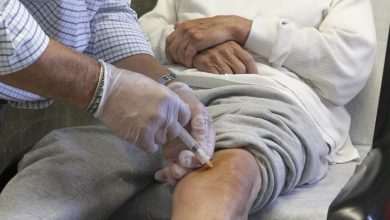
Are you interested in making a difference in the health and well-being of entire communities? A career in public health can be highly rewarding, offering the opportunity to solve real-world challenges, promote healthy behaviors, and prevent the spread of diseases. Whether you’re looking to work in government, non-profit organizations, research, or education, public health professionals need a specific set of skills to excel. This field demands a blend of scientific knowledge, communication abilities, and problem-solving strategies.
In this blog, we will share the essential skills you need to thrive in public health, helping you prepare for a successful and meaningful career in this field.
1. Communication Skills
Effective communication is one of the most critical skills in public health. Professionals in this field must share complex information in ways that are easy to understand for different audiences. Whether you are interacting with policymakers, communities, or healthcare providers, being clear and concise is essential.
Strong communication skills also help build trust. Public health experts often engage with diverse groups and must adapt their messages to suit cultural and regional needs. Both verbal and written communication are necessary to promote healthy behaviors and share important findings.
2. Analytical Thinking
Public health work requires sharp analytical thinking. Professionals must analyze data, spot trends, and determine what actions will improve health outcomes. It’s important to think critically and evaluate evidence to design effective programs and policies. Analytical skills are key when developing solutions for complex public health challenges.
If you’re pursuing an online masters of public health, you’ll have many opportunities to strengthen this skill through coursework and projects. You’ll work with real-world data and learn how to interpret statistics that drive public health decisions. With these skills, you’ll feel prepared to assess health risks and create meaningful interventions.
3. Leadership Abilities
Leadership plays a significant role in public health. Whether leading a project team or managing a community health initiative, public health professionals need to inspire and motivate others toward common goals. Leadership isn’t just about being in charge—it’s about setting a good example and building collaboration.
In many situations, public health professionals act as change agents, bringing different stakeholders together. Strong leaders also need to be adaptable, making adjustments when unexpected challenges arise. Leadership skills help ensure that projects stay on track and community needs are met.
4. Cultural Competency
Public health professionals work with diverse communities, and understanding cultural differences is essential. Cultural competency means respecting other people’s values, beliefs, and practices while providing care or support. It helps build trust and makes health interventions more effective.
This skill also allows public health workers to tailor programs to specific communities. Recognizing cultural practices ensures that messages about health reach people in meaningful ways. Professionals who develop cultural competency become better at problem-solving within different populations.
5. Problem-Solving Skills
Problem-solving is a core part of public health. Professionals often face unexpected challenges, such as disease outbreaks or sudden shifts in resources. Finding practical solutions quickly is critical in these situations. Problem-solving skills allow you to stay focused, identify obstacles, and develop strategies that work in real time.
Public health professionals also need to plan for the long term. Solving problems on a day-to-day basis helps, but it’s just as important to build sustainable systems. This balance between immediate action and long-term planning is essential for creating lasting improvements.
6. Research Skills
Public health professionals rely heavily on research. Whether studying disease patterns or evaluating public health programs, research ensures that decisions are based on reliable data. Professionals need to gather, analyze, and interpret information from various sources.
Having good research skills means you know where to find quality information and how to apply it effectively. In public health, staying up-to-date with the latest studies and guidelines helps you recommend the best actions to improve health outcomes. Research is not just about collecting facts—it’s about using them wisely.
7. Interpersonal Skills
Public health work involves interacting with many people, including community members, healthcare workers, and policymakers. Having strong interpersonal skills helps professionals build positive relationships and work well with others. Good interpersonal skills also encourage teamwork and collaboration.
These abilities help public health workers engage with the public in a way that feels supportive and genuine. When people trust you, they are more likely to follow health advice and recommendations. Developing interpersonal skills can make your work more effective and rewarding.
8. Project Management
Managing public health initiatives requires solid project management skills. Professionals often oversee multiple tasks and must coordinate with different teams. Successful project management means setting clear goals, timelines, and budgets to keep everything organized.
A public health career often involves managing grants or large-scale campaigns. Project management helps you prioritize tasks and handle challenges that may come up along the way. Staying organized and keeping everything on track is essential for achieving your goals.
9. Flexibility and Adaptability
The public health field is dynamic, meaning things can change quickly. New diseases emerge, policies shift, and community needs evolve. Public health professionals must stay flexible and adapt to new situations without losing focus. Being adaptable allows you to respond quickly to crises while still working toward long-term goals.
Adaptability also helps professionals work across different roles. You might find yourself wearing many hats—educator, advocate, or researcher—depending on the needs of the moment. Having a flexible mindset will help you handle these varied responsibilities with confidence.
10. Ethical Judgment
Public health work comes with significant ethical responsibilities. Professionals often make decisions that affect large groups of people, so having strong ethical judgment is essential. It’s important to be fair, transparent, and respectful in all aspects of public health work.
Public health workers often need to balance competing interests, such as individual freedoms and community safety. Having a clear understanding of ethics helps you navigate these situations thoughtfully. Ethical judgment builds public trust, which is crucial for the success of any public health initiative.
In conclusion, a career in public health offers many opportunities to make a difference. From promoting healthy lifestyles to responding to emergencies, the work is challenging but meaningful. Developing the essential skills discussed in this article will set you up for success in this field.



